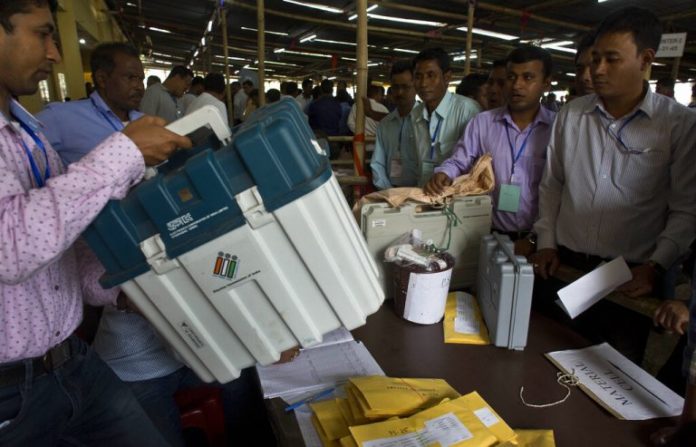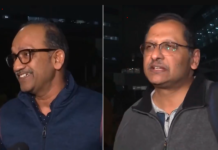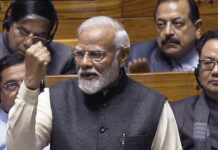The Supreme Court on May 21 dismissed a writ petition seeking 100% random physical counting of EVM-VVPAT in the Lok Sabha polls of 2019, saying there is hardly two days left before counting and the country should be allowed to choose its government.
Dubbing the PIL filed by a collective of technocrats called ‘Tech4All’ a “nuisance”, the Vacation Bench of Justices Arun Mishra and M.R. Shah junked the PIL in a brief hearing.
The Bench pointed out that all the seven phases of polling are over and the country is looking forward to form a new government on May 23. The PIL is ill-timed and would only disrupt the electoral process which is on its last spring to the finish line.
The PIL had cited the recent allegations of changing the EVMs even as the Election Commission of India is strongly denying them.
The PIL said that though the apex court had in April raised the physical counting of Electronic Voting Machines using Voter-Verified Paper Audit Trail (EVM-VVPATs) in constituencies from one to five on a plea filed by 21 Opposition parties led by Andhra Pradesh Chief Minister Chandrababu Naidu, that is not enough of a safeguard from tampering. There is a need for 100% physical counting for fool-proof poll results on May 23.
On May 7, a Supreme Court Bench led by Chief Justice Ranjan Gogoi had dismissed a review plea by the 21 Opposition parties to review its April judgment rejecting 50% random physical verification of Electronic Voting Machines using Voter-Verified Paper Audit Trail.
Random physical verification
The Opposition had found the Supreme Court’s April 8 verdict a far shot from what it wanted – VVPAT verification in 50% or 125 polling booths in each constituency. The physical scrutiny of slips in five EVMs has increased the VVPAT verification percentage from .44% to less than two percent.
The review plea had contended that the Indian democracy could not be left to the mercy of EVM programmers. It pointed to large-scale tampering and selective malfunctioning of EVMs in the Lok Sabha polls of 2019.
The court had also refused to delve into the issue of integrity of the EVMs.
Instead, the court was more keen on the logistics of physical verification in its April 8 judgment. It had said the VVPAT verification of five EVMs, rather than in 125 polling booths, was far more “viable at this point of time” in the Lok Sabha poll season. It had added that verification of five EVMs would not be a drain on the ECI’s infrastructural resources and manpower as the Opposition’s idea would have been. Neither would counting VVPAT slips of five EVMs take any substantial amount of time, the court had explained.
The ECI has said that a 50% random physical verification of VVPATs would delay Lok Sabha poll results of 2019 by six whole days. The ECI had quoted from a March 22 report of the Indian Statistical Institute which had said that a sample verification of 479 EVMs and VVPATs out of a total 10.35 lakh machine would lift public confidence to 99.9936%.












